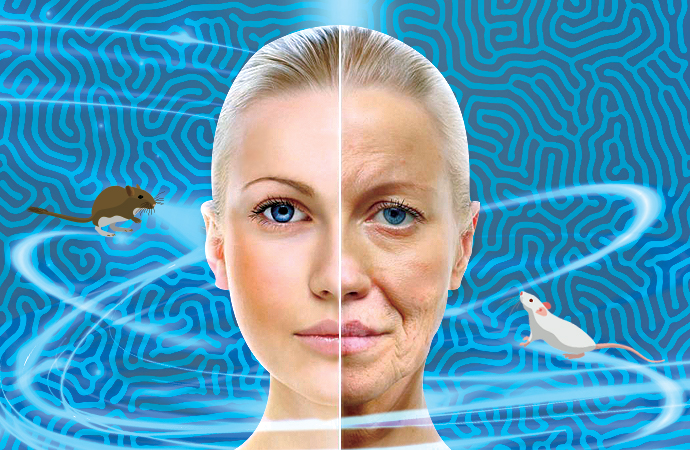Aging is a natural process all living organisms undergo. As humans, we experience changes to our external features as well as internal functions and behavior as we age. Among these changes, neurodegeneration problems affecting cognitive performance are highly prevalent in elderly populations. Age-related neurodegenerative pathologies are a growing public health concern, while effective treatments remain scarce. Researchers predict that, by 2050, the percentage of aged individuals will exceed 21% of the population therefore, achieving healthy aging should be considered a goal for society.
Scientists have been aware of the connection between a healthy gut and aging for a while, but it was not until recently that researchers showed that age-related changes in our gut can cause neurodegeneration.
The bacteria community living in our gut influences overall health, affecting our immune system, brain, and behavior. This group of microbes, the microbiota, changes as we age. Beneficial bacteria, which have a positive impact on our metabolic and immune systems, are replaced during aging with other types of bacteria that can trigger inflammation and metabolic problems.
In a recent paper published in Nature Aging, researchers John Cryan and Marcus Boehme and colleagues found that microbiota transplantation from young mice into old mice reverses many age-related metabolic and cognitive behavior dysfunctions such as those related to learning and memory.
In their first approach, the researchers analyzed microbiota in the feces of young and old mice, focusing on the expression of the genetic material present in the microbiota, the microbiome. Even though they did not find changes in the number of bacteria, the type of bacteria present in the aged mice changed significantly compared to those in the young ones.
To understand the effects of the microbiota on aging, the authors transplanted feces from young (3-4 months) or old (19-20 months) mice into aged (19-20 months) mice. Eight weeks after transplantation, they analyzed changes in the cognitive performance, metabolic markers, and gene expression of the mice.
Using a maze, the team evaluated the cognitive performance and behavior of young mice and aged ones that did and did not undergo microbiota transplantation. They analyzed the mice’s ability to find a hidden platform and their speed when doing so. Aged mice that received microbiota from the young ones showed similar performance to the latter and found the platform faster than the ones who did not.
Inflammation is a common change that takes place during aging: aging increases inflammation in the brain, affecting a group of immune cells called the microglia. Dr. Cryan and collaborators showed that young microbiota transplantation into old mice can reduce such inflammation. Furthermore, after transplantation, the hippocampus—an area of the brain responsible for learning and memory—in aged mice showed a similar chemical composition to that in the brains of young mice.
These findings suggest we may find the secret fountain of youth inside the gut and microbiota. Despite these exciting results, further research is needed to understand how the microbiome communicates with the brain to stop the passage of time.
Although microbiota transplantations could, in the future, have therapeutic potential to treat cognitive decline associated with aging, promoting our gut health could be a better approach to ensure healthy aging.
References
Boehme, M., Guzzetta, K.E., Bastiaanssen, T.F.S., et al. Microbiota from young mice counteracts selective age-associated behavioral deficits. Nat Aging 1, 666–676 (2021). https://doi.org/10.1038/s43587-021-00093-9
Duggan M, Torkzaban B, Ahooyi TM, Khalili K, Gordon J. Age-related neurodegenerative diseases. J Cell Physiol. 2020 Apr;235(4):3131-3141. doi: 10.1002/jcp.29248. Epub 2019 Sep 25. PMID: 31556109; PMCID: PMC7029396.
Cover illustration by Dana Dumea



